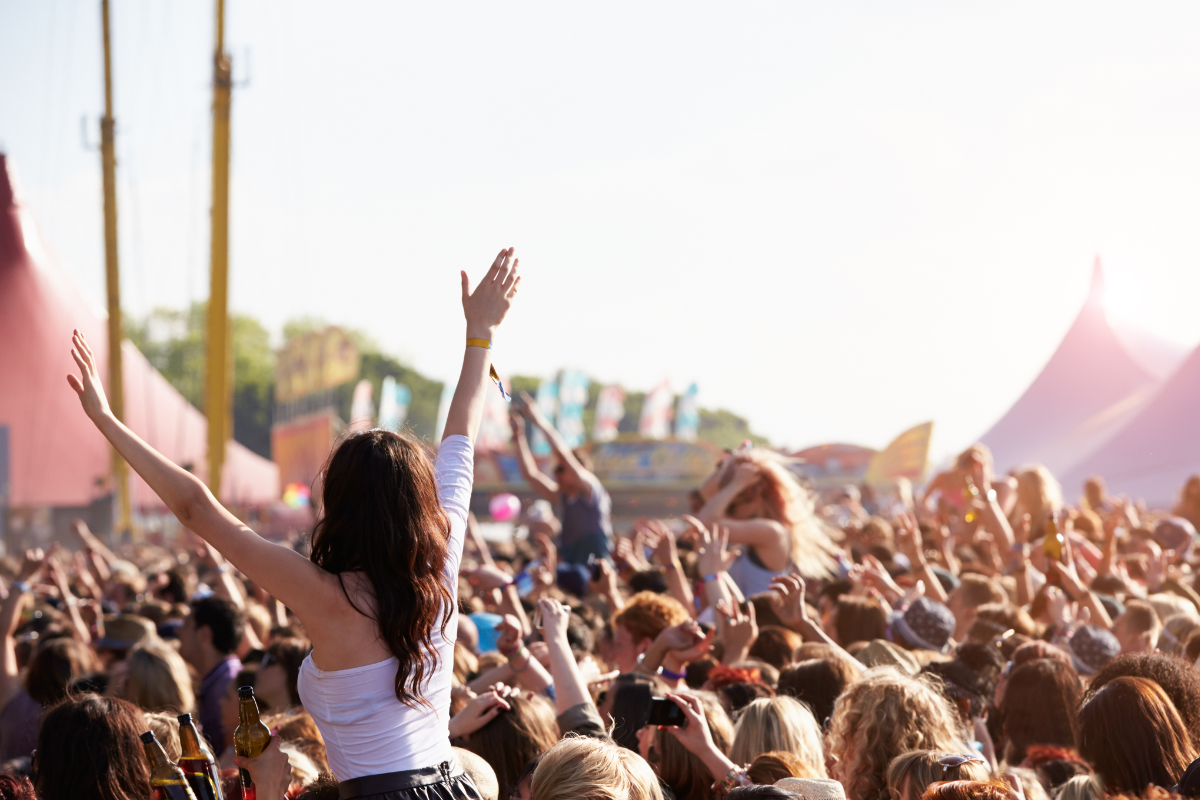
Photo: monkeybusinessimages via iStock
Calls for action on sexual harassment at festivals
Women and Equalities Committee hear more training, reporting mechanisms and improving the gender-balance of line-ups could help reduce cases of sexual harassment at live events.
A panel of music industry professionals have told a group of MPs more needs to be done to support women who are subject to sexual harassment at music festivals.
The Women and Equalities Committee’s fourth evidence session inquiring into misogyny in music heard that sexual harassment often goes unreported at musical festivals, as well as other live music events.
John Shortell, Head of Equality, Diversity and Inclusion at the Musician’s Union (MU), said reporting mechanisms are one of the problems for artists and women attending live music events.
READ MORE:
- Government urged to tackle discrimination and harassment in music
- Workplace discrimination in music sector on rise
“We would like to see more work to provide visible reporting mechanisms at festivals and live music venues, as well as training for security and people working at the venues, so that they have more of an education in how to respond to reports of sexual harassment,” he added.
“Where something is reported, it is logged and we can start to build a picture – 'Is this venue specifically a problem, where we have sexual harassment commonly? How do we address that?’ That is an important part of the puzzle of fixing this culture as well.”
Statistics shared by the committee state over four in 10 women under 40 have experienced unwanted sexual behaviour at a UK festival, while the MU has described sexual harassment at live music events as “shockingly normalised” and seen as a “occupational hazard”.
“Our members all work in a range of venues, pubs and festival sites, where alcohol and drug consumption is more likely. They are really informal working practices, and employment relies on networks” Shortell said.
“You can see that, as these ways of working add up, they create a culture where sexual harassment is more likely to happen and more likely to go under-reported as well.”
Shortell said the MU is working with festivals to share information on its Safe Space service but would like to see more festivals engaging with the initiative.
He also said the union sees the forthcoming Creative Industries Independent Standards Authority as a “necessary step to help plug gaps” in awarness and availablity of systems that support those who have experienced sexual harassment.
Are balanced line-ups the answer?
The committee also heard that few female musicians are being given the opportunity to headline music festivals, while many festival line-ups are still featuring considerably more male acts.
This year, the majority of the UK’s largest music festivals, including Glastonbury, TRNSMT, Download and Creamfields, have no female headliners. Reading and Leeds has one – Billie Eilish – who was Glastonbury’s lone female headliner last year.
When announcing the first wave of acts earlier this year, Glastonbury organiser Emily Eavis defended having three all-male acts headlining the Pyramid Stage, claiming that major festivals struggle with a lack of viable female headliners because of an “industry pipeline issue”.
Managing Director at End of Road Festival Lauren Down told the committee her festival has no female headliners this year, but “not for lack of trying”.
“There are lots of obstacles when it comes to booking headliners. I have heard witnesses in previous sessions talk about album cycles, and they affect us as well in terms of touring cycles. You then have exclusivities that are put on you by larger events. You also have a certain number of artists who will be outside of your budget as an independent festival,” Down said.
Down added there are “fewer excuses” for not having a gender balanced line up across all stages at a festival, but few UK music festivals are managing to do so.
A recent report showed 11% of musicians set to play 104 UK festivals were women. Meanwhile, an Association of Independent Festivals report in April found that of its 105 members, 20% have achieved a gender balanced line up this year.
Also giving evidence to the committee was Marta Pallarès Olivares, Head of International Press and PR at Primavera Sound Festival in Spain, who helped Primavera become the first major festival to achieve a gender balanced line up in 2019.
Olivares said that after an initial backlash, Primavera sold more tickets than ever and was able to increase its capacity after the gender balanced line up attracted new audiences.
“We started receiving praise and more praise, especially from people who had never attended a music festival before because they did not feel safe,” Olivares added.
“I think, however, that everything is linked, so the more we invest in gender balanced line-ups, the more diverse our audience is going to be and the safer it is going to be for everyone.”
Join the Discussion
You must be logged in to post a comment.